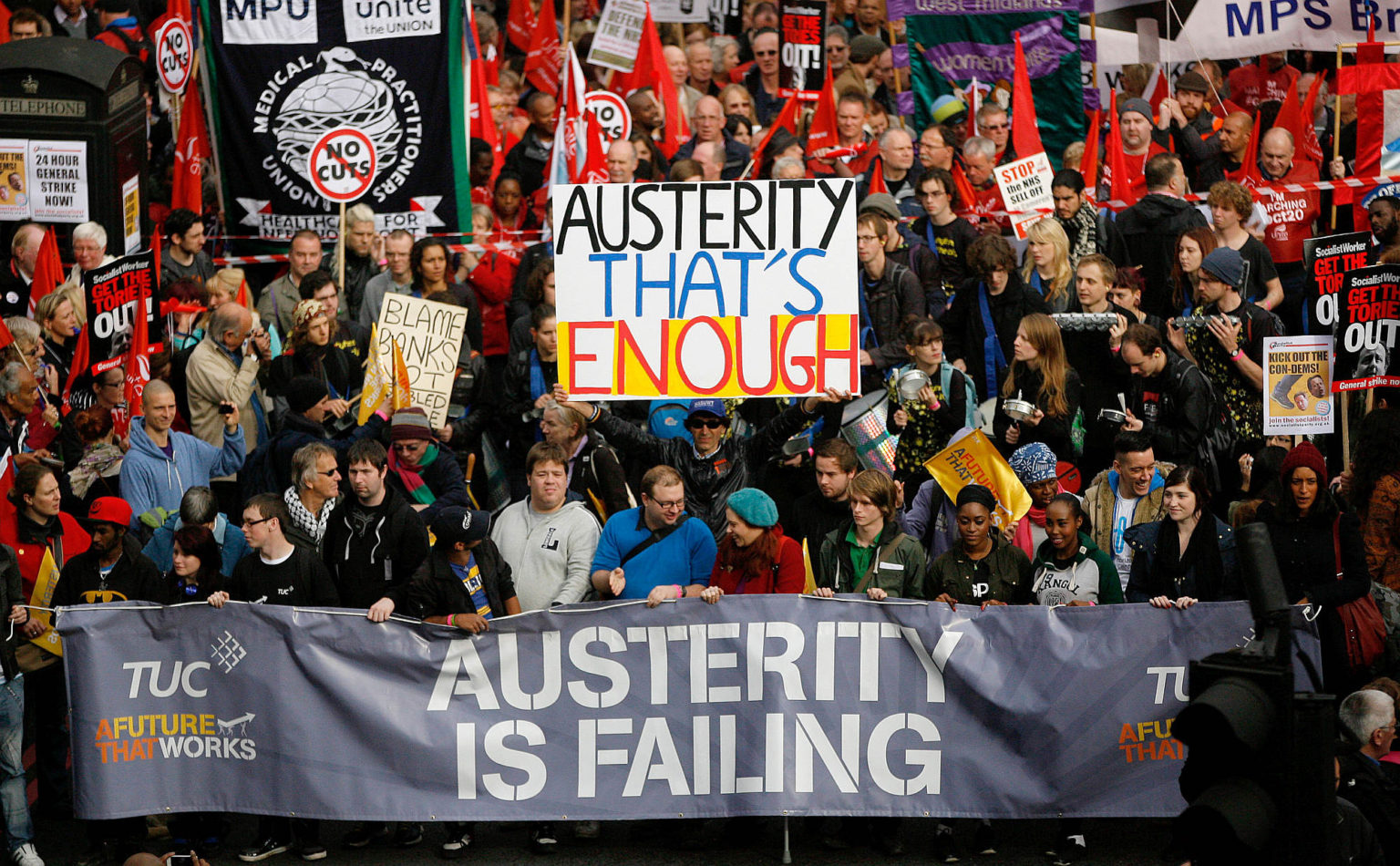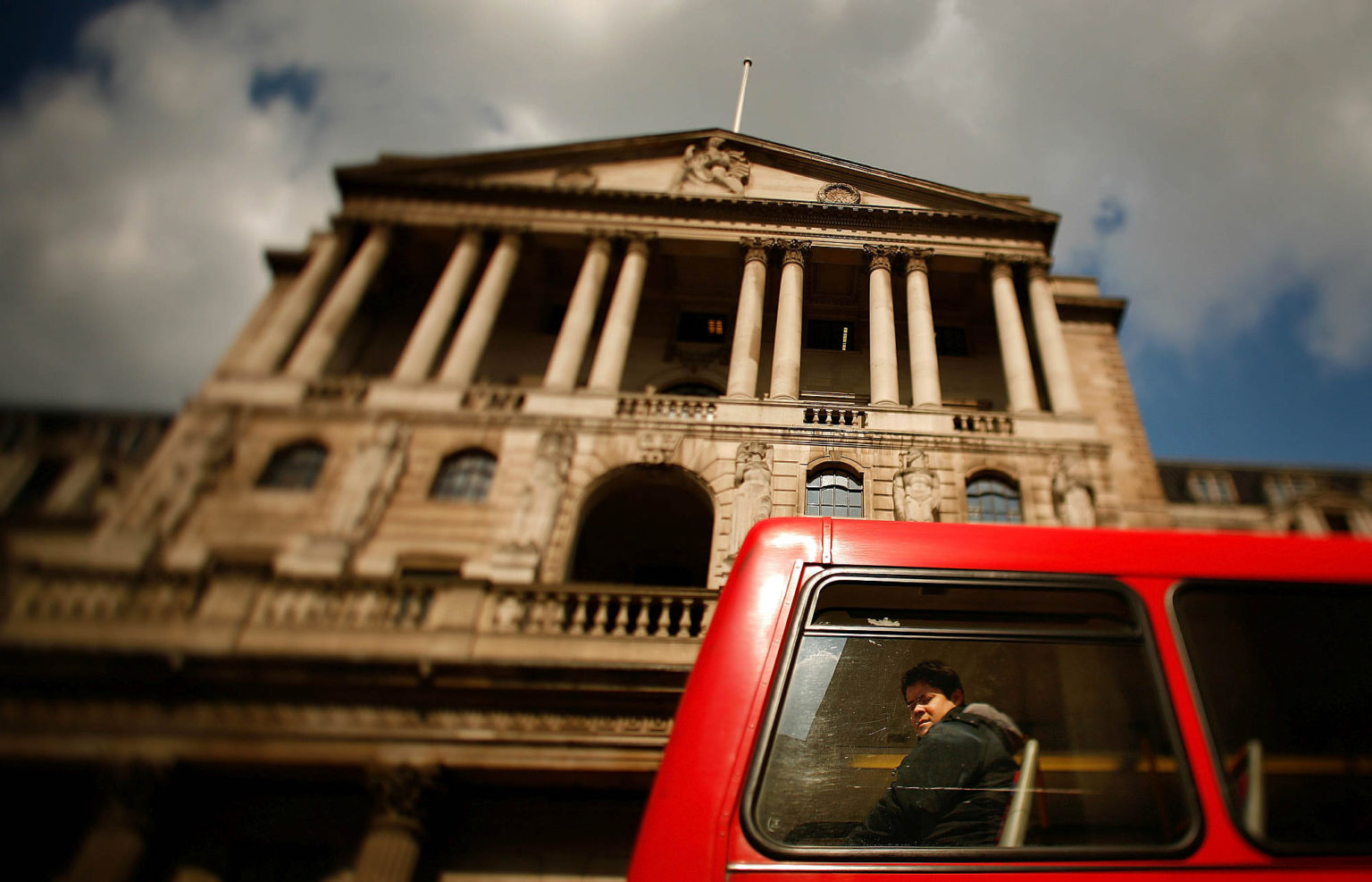
Long-read
The economic transformation we need
We need a state-led shake-up of the failing status quo.
One legacy of the pandemic has been to bring government activism out of the shadows. Whether you criticise or support how governments managed the pandemic, it is indisputable that their actions and inactions were of huge consequence to our lives and to the economy. So far, though, this acknowledgment has yet to unmask the myth that the past 40 years has been a period of state economic inactivity. Until this is understood, the current debate about state economic intervention will be misleading.
The mistaken idea of a revival, rather than a continuation, of state activism follows the common intellectual narrative from the 1980s onwards — that the state has been shrinking while private markets increasingly dominate. Thinkers on both the right and the left often present this as the era of ‘neoliberalism’, even when the evidence says otherwise.
They talk of ‘deregulation’, yet the rulebooks of national and international regulators have been getting steadily bigger, and the role of ‘compliance officer’ has been one of the few expanding business occupations. They draw attention to governments ‘retreating from public-service provision’, and fail to see that the outsourcing practice has deepened business dependence on state largesse. They assert ‘the dominance of market forces’ even when market pricing has been increasingly distorted by monetary policies set by ever-more influential state-run central banks. In fact, the resulting disconnection between manipulated financial prices and economic reality has rarely been wider.
Despite all the evidence of an expansion of official interventionism, the idea that the state has played a subservient role in economic life has broadly prevailed – until, that is, the shock of the pandemic. Now, in response to this abnormal economic crisis, commentators are anticipating a new era in economic thinking and the return of an activist state. In particular, many are endorsing the idea of fiscal stimulus through higher government spending.
For example, earlier last year political scientist David Runciman said the pandemic crisis could ‘represent a turning point towards the assertion of greater government control over economic outcomes’. Contrasting the shock of the pandemic to that of the 2008 financial crisis, he noted: ‘The 2008 financial crisis arrested the momentum of that movement [against government intervention] but didn’t fundamentally alter its course. Now, though, the future may be more open to lasting change.’ Thinkers of all political stripes are championing this prospect.
Mariana Mazzucato, director of University College London’s Institute for Innovation and Public Purpose, and adviser to the British Labour Party and the European Commission, sees the Covid crisis as an opportunity for government to get back in the driving seat. Known for promoting an ‘entrepreneurial state’, she argues that after decades of letting business have its ways, governments should go on the offensive.
The opportunity to change capitalism was, she wrote, squandered after the financial crash a decade ago. The pandemic provides another opportunity to bring about structural change that it would be irresponsible to miss. A chance not just to kickstart the economic recovery, but to ‘rewrite the rules of the game’ towards an ‘inclusive’ and ‘sustainable’ capitalism.

Meanwhile, right-wing thinkers, including economists sympathetic to the free market, are also pointing to the opportunities for governments to do more. After decades of blaming public spending for exacerbating our economic problems, they are now talking positively about well-targeted government expenditures.
For instance, in late 2020 the centre-right, free-market think tank Policy Exchange reported that ‘active fiscal policies to stimulate demand are now the key to macro-economic management’. It pointed out that the falling costs of servicing public-sector debt mean that in tackling the immediate crisis, ‘policymakers should be less constrained than they were in the past, when both inflation and interest rates were high’. Policy Exchange went on to recommend that the British government should lock in these low rates by issuing extremely long-dated, or undated non-repayable, public debt.
The message from across the political spectrum is that Covid has re-energised government activism and that this needs to continue after the disease is controlled, not least to help revive the economy. Ultra-low interest rates – facilitating even higher accumulations of debt – are the convenient enabler.
Out of this emerging consensus, what are the prospects of a qualitative shift in economic policy? Have the state’s preservationist policies run their course? Could governments at last start to act to bring about an effective recovery from recession and establish the conditions for durable economic expansion? Is the time for real economic transformation upon us? There are still big hurdles to climb to get there.
Beyond the narrative of neoliberalism
All the contemporary commentary about the rehabilitation of government intervention is less about a decisive shift in practice and more about the removal of a veil that had been covering up ongoing state activism. This needs to be recognised, because a problem with the pervasive story of ‘neoliberalism’ is that it evades the real sources of our economic problems. These are not the conventional ones of greed, or inequality, or private-sector ruthlessness.
They derive from a dysfunctional, state-supported business sector that has become unable to create the wealth society needs to live well and prosper. Instead, Western societies muddle along, reliant on debt and asset bubbles for the appearance of any vitality. Until the state’s crucial role in preserving the failing private sector is grasped, it is extremely unlikely that the government will stumble upon the sort of bold measures needed to reinvigorate the economy.
For four decades there has been plenty of state activism – monetary, fiscal and regulatory – acting to prop up this weak economy. But the preservationist measures applied have primarily been sustaining depression, not countering it. Without wider public recognition of the reality of state-market relations, the necessary, and genuinely new, role for the state to help shake up the economy will remain hidden. The policy debate prompted by government activism during the pandemic is likely to remain stuck in quite superficial areas. A bit more fiscal spending here, a bit more regulation there, and so on.
As Runciman, Mazzucato and many others have noted, in the years following the 2008/2009 recessions, the need for state-led transformation was already apparent. However, despite the shock to the capitalist system, not much changed in official policy thinking in the advanced industrial countries. The consensus seemed to be that governments should prioritise reducing their budget deficits and maintain, or reduce, their debt levels relative to annual output.
This response followed from the conventional thinking since the late 1970s — namely, that expansionary fiscal policies tended to do more economic harm than good. In particular, public borrowing was seen as counterproductive to economic growth because state expenditure was generally wasteful, stimulated inflation, and ‘crowded out’ private investment. The argument went that when governments borrowed to fund their unproductive activities, interest rates tended to rise, making it less feasible for businesses to borrow for their supposedly ‘productive’ goals.
Increasingly, the default political position was that governments should aspire to balanced budgets over the economic cycle. The assumed automatic increase in public deficits in periods of recession – caused by a combination of reduced tax revenues and enhanced welfare payments pursuant on higher unemployment – was said to demand a subsequent period of public-sector austerity.
With the Biden presidency only just beginning, it is worth noting that the American government was for a long time the exception to this rule. State spending in the US was less constrained than it was in its Western cousins because the dollar’s position as the world’s money meant Washington didn’t have to worry as much about finding buyers for its sovereign debt.
However, the general maxim in the advanced industrial countries, sometimes institutionalised in specific fiscal rules, was that spending cuts, often supplemented by tax increases, were deemed essential to balance the government’s books. This perspective on government budgets was taken as an embodiment of the ‘smaller state’ perspective. Popularised through the Reagan-Thatcher years, this became a constitutive part of elite thought in the ensuing decades.
The idea of neutral budget-balancing allowed politicians subsequently to abdicate their economic responsibilities. The discrediting of fiscal policy activism justified taking economic policymaking out of the political arena. If the government’s ideal was fiscal neutrality, its accountability to the voters for the condition of the economy could also be neutralised.
Contradicting this diminishing-state message, though not disturbing the evasion of politicians’ accountability, was the elevation instead of monetary policy. Central bankers, supposedly ‘independent’ from the political process, were expected to take on the prime responsibility for stabilisation alongside their existing responsibility for ensuring monetary stability in the form of steady low inflation.
Over time, monetary policy increasingly became the ‘only game in town’ for economic management. With every recurrence of capitalist turbulence since the late 1980s, the central banks opened their liquidity taps a little more to ease matters. This generally worked to calm, and then energise, financial markets, though it did less and less to influence productive activities. Ultimately, the financial crash of 2008 ushered in a state of permanent super-easy monetary policies. The lacklustre decade since shows that although the state has been intervening more aggressively than ever before, this has had a less and less positive economic effect.
The discrediting of monetary policy
Today, though, reinforced by the pandemic experiences, the pro-austerity, balanced-budget goal is being abandoned, especially in the advice being given to governments by most national and international economic organisations. Ironically, the central bankers, to whom most economic policy has been outsourced by the politicians, have become among the most vocal in highlighting the limitations of monetary policy and arguing that governments should become more fiscally active again. Instead of relying on their blunt policy instruments of adjusting interest rates and money printing, heads of the state banks in the US, Britain, Japan and the EU have repeatedly demanded that their governments take the lead in economic management through fiscal-policy measures.
Similarly, all the main international institutions – the International Monetary Fund (IMF), the World Bank, and the Organisation for Economic Cooperation and Development (OECD) – have reversed their post-2008 calls for fiscal rectitude and caution. Instead, especially since Trump and Brexit in 2016, they have increasingly been suggesting that governments in the advanced economies take greater responsibility for economic policy management.
For instance, 2021 started with Laurence Boone, the OECD’s chief economist, warning member governments against a return to austerity measures. In a turnaround from the OECD advocating tightening government spending in the years after the financial crisis, Boone has been arguing for an expansionary fiscal stance. She conceded it had been a mistake on both sides of the Atlantic for governments to fail to stimulate demand in the post-financial-crisis years. Her lesson is that governments today have to keep spending money to help limit the economic damage caused by coronavirus.

This echoed the earlier advice from the IMF in October. Vitor Gaspar, its head of fiscal policy, argued – again in a reversal of its message for fiscal retrenchment 10 years previously – that ‘there is a risk of prematurely withdrawing fiscal support’. Gaspar continued: ‘Policymakers that have a choice would be well-advised to be very gradual and to maintain fiscal support until the recovery is on a sound footing and the long-run scarring impacts from Covid-19 are perceived to be under control.’
In consequence, the IMF advised Britain to increase spending on infrastructure and job support. It recommended dropping the default position of trying to bring public spending down, contradicting several intimations in this direction by the chancellor Rishi Sunak.
Pressures for change
Why these about-turns in official advice? A recurring theme in the arguments made for a return to fiscal activism is a fear of the people. After the shocks of Brexit and Trump in 2016, advisers worry that people might not put up with another period of stagnation. They see continuing the existing neutral approach to economic policy as a threat ‘to political stability’. Further years of sluggish growth, mediocre jobs and widening inequalities are seen as drivers of potentially alarming social unrest.
Boone herself warned explicitly that fresh austerity measures would risk a popular backlash. She spelt out her belief that the public would revolt against renewed austerity or tax rises if governments sought quickly to return deficits and debt to pre-pandemic levels. Referring to the previous rise in support for populist parties she warned: ‘If we thought there was popular resentment because the quality of jobs was going down [before Covid-19], then it’s going to be much worse after this pandemic.’
Similarly, last autumn the IMF warned of ‘intensifying social unrest’ if governments adopted austerity measures after the pandemic and withdrew policy support prematurely. The IMF’s concern drew on its assessment of a pre-Covid increase in popular dissatisfaction with government. It noted the pre-existing foundation of ‘declining trust in established institutions and lack of representation in governance structures, as well as a perceived disconnect between leaders’ priorities and the problems faced by the public’.
Such warnings reveal a tendency among too many contemporary thinkers to view popular dissent as driven primarily by economic considerations, especially rising inequalities. This economically focused proposition ignores people’s wider and more substantial political and cultural concerns. However, it does show how anxious the elites are about their authority over society.
It is telling that central bankers – previously regarded as bastions of staid establishment thinking – have been in the vanguard calling for governments to become more active. This is probably because it is hard for them to ignore the fact that their policies have not only failed to meet their prime target of steady low inflation, but have also failed to aid economic stability. Instead, their ever-easier policies of zero interest rates, and expanding balance sheets arising from quantitatively eased purchases of bonds and other financial assets, are increasingly creating problems and potential instability.
Far from fostering growth and inflation, the main achievement of these measures has been to boost asset prices of bonds and shares. Hence the mounting concern within central banks and international economic organisations about stoking financial instabilities, as well as exacerbating wealth inequalities. Rising financial markets favour the better off who already own these assets, while disadvantaging the rest.
The pandemic has exacerbated such concerns, especially as easier monetary policies have now been extended. As the president of the World Bank recently highlighted: ‘Stimulus mechanisms are working to concentrate wealth at the top… People at the bottom are going down even as people at the top are going up.’ He specifically drew attention to central banks’ large-scale asset-purchase programmes aggravating inequality.
Others stress that ultra-easy monetary policies have been reinforcing the zombification of the economy. Low interest rates and easier credit facilities sustain unprofitable, or barely profitable, zombie businesses that are unable to invest in order to remain viable. Policy Exchange highlighted how ‘the combination of very low interest rates globally and in the UK and other public-sector support has increased the number of zombie businesses that would normally close but are able to struggle on, with little scope for innovation and development’.
Moreover, the accompanying congestion of the economy inhibits the expansion of, and investment in, stronger businesses, too. As investment strategist Alberto Gallo explained, ‘We are definitely on a Japanification path as monetary policy has been pulling most of the weight, and there are a lot of unintended consequences from low interest rates’. Gallo concluded that ‘there’s a trade-off between helping the economy in the short run, but at the same time preventing innovation in the long run’.
A common policy theme being promoted by those outside government is to rebalance the monetary-fiscal mix. Boone, for instance, called for a reversal of the relationship between fiscal and monetary policy. Governments should take the primary role of stabilising the economy in the recovery, with the central banks relegated to a supporting role. In practice this means that monetary policy would accommodate an active fiscal policy.

To some extent, central banks have been pushing for just such a reorientation, and not just in their speeches berating government inactivity. By purchasing government bonds in huge quantities last year, as government borrowing rocketed in response to the pandemic lockdowns, central banks were in effect financing government debt. Although the bankers self-consciously deny this, since it goes beyond their formal remit, it has meant that finance ministries and treasuries are now taking a bigger role in managing the economy.
In practice though, one part of the state – the monetary authorities – is supporting the capacity of another part – the treasuries – to fund government spending. Such fiscal-monetary coordination, whether camouflaged or overt, has now become more established during the heavy public-borrowing spree accompanying the pandemic economic shutdowns.
The blurring of the old distinction between fiscal and monetary policies is becoming normalised. It has been widely noted that the public deficits of the Eurozone, Japan, the UK and the US as a proportion of GDP have been roughly matched by their central banks’ acquisition of assets and expansion of their balance sheets. Joe Biden’s appointment of the former Federal Reserve Board chair Janet Yellen as his treasury secretary seems to symbolise this closer interdependence between finance ministries and central banks.
Fiscal stimulus is limited, too
One big flaw in the rebalancing discussion is that it assumes that the primary economic problem is a lack of demand. It is easy to show a deficiency of demand when businesses and households abruptly curtail their spending during recessions. However, this doesn’t mean that boosting demand fixes a depressed economy. An expansionary state budget enables additional spending on goods and services, and can initiate more public-investment projects. But none of this automatically overcomes the decay of productive capacity that characterises today’s depression.
Britain, to a more extreme level than other mature economies, is stuck in a ‘low value’ trap, a prolonged period of very low or no growth. Lack of business investment perpetuates subdued productivity and a low-wage economy. This low-paid employment allows businesses to keep operating without having to invest productively. These are structural problems not cyclical ones. Even though we are today in a recession, it would be complacent to confuse a ‘rebound’ from pandemic torpor when demand picks up as a revival of durable growth. Moreover, these long entrenched features of depressed economic activity will not disappear because of higher government spending.
Even stronger industrial countries, such as Japan or South Korea, offer little evidence that extra government spending can transform a struggling economy. Japanese government debt has grown faster than any developed economy, more than tripling from 70 per cent of GDP in 1992 to over 220 per cent now. Yet all this extra state spending has been unable to prevent Japan’s three ‘lost decades’ of anaemic growth.
Similarly, before the impact of the pandemic, South Korea’s finance minister Hong Nam-ki was bemoaning the failure of record stimulus efforts in his country to make much of a difference to private spending or job creation. ‘We have expected fiscal spending to play the supporting role in adding vitality to the private sector’, the minister said. ‘However, it is not working well with limited spillover effects, making us worried.’ These experiences in developed Asia show that when economic problems are structurally related to production, stimulating demand, through either monetary or fiscal policy, is not going to fix things.
It is equally telling that industrial production in America and Britain has been in a moribund condition for decades, despite huge amounts of public borrowing. Despite the official rhetoric, ‘Keynesian’ fiscal stimulus has remained the norm ever since the return of depression in the early 1970s. With the exception of four years at the end of the 1990s, when tax revenues were also temporarily boosted by the take-off of the IT industry, the US government has run a budget deficit every year. Similarly the British government has been in annual budget surplus only five times in the past half century. It is a fantasy to expect a bit more debt-financed state spending to reverse decades of industrial decay.
Decision time beckons
While the need for a state-led economic shake-up is now evident to many – and not just to those suffering the consequences in unemployment or in low-paying insecure jobs – governmental reticence and procrastination have become well entrenched over the past decades. Although substantial change within the economy is long overdue, government obduracy could still prevail.
On top of the influence of a conservative culture, the parallel practice of outsourcing state responsibilities to commercial or non-profit bodies reinforces government’s reluctance to act. Governments today sense that this process has hollowed out the state’s capacity to act. This makes taking action even more daunting for the political class, reinforcing the course of hesitancy and indecision.
Hence there are concerns that governments could again miss the opportunity for real change. For instance, Nobel laureate Angus Deaton, who for years has been highlighting the human damage caused by capitalism’s social and health iniquities, worries that governments might still fail to take appropriate measures. He says that his ‘overarching worry’ is that ‘voices against active government, temporarily stilled or overruled by the crisis, will return loudly. They will enjoy strong financial and intellectual support, and the pandemic will leave enormous debts used to justify their favoured austerity policies.’
Similarly, the OECD’s Boone warned that so far she had seen little sign that finance ministries had begun to adjust their approach. In her new-year interview, she added: ‘When you look at the debt commission in France or the UK spending review or discussions in Germany, I am not sure at all that policymakers have yet made a leap into a new conceptual framework of debt sustainability… It is up to international organisations and ministries of finance to start thinking about it now.’
In 2021, we’ll probably see which fearful influence is stronger within government circles. Fear of the people fed up with a system that is continually letting them down. Or fear of the social disruptions resulting from dropping the conservator policies that have been dulling the forces of creative destruction.
The best resolution to the government dilemma is to open up a discussion with the public about the necessity of substantive economic transformation if we are to return to durable prosperity. It is unavoidable that this will be a disruptive process – and one crucial state responsibility is to sponsor people through this upheaval – but, in the end, it would be less painful than the alternative of trying to perpetuate a defunct status quo.
Phil Mullan’s Beyond Confrontation: Globalists, Nationalists and Their Discontents is published by Emerald Publishing. Order it from Emerald or Amazon (UK).
All images: Getty.
To enquire about republishing spiked’s content, a right to reply or to request a correction, please contact the managing editor, Viv Regan.









Comments
Want to join the conversation?
Only spiked supporters and patrons, who donate regularly to us, can comment on our articles.